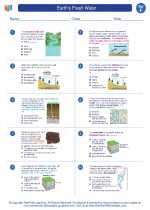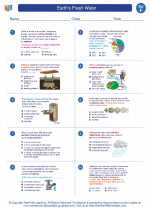Organs
An organ is a collection of tissues that perform a specific function or group of functions within an organism's body. Organs are essential for the survival and proper functioning of the body. Each organ is made up of different types of tissues that work together to carry out specific tasks. They are part of larger systems that work together to keep the body healthy and functioning properly.
Types of Organs
There are various types of organs in the human body, each with its own distinct functions. Some of the major organ systems include:
- Respiratory System: Includes organs such as the lungs, trachea, and diaphragm, which are responsible for the exchange of oxygen and carbon dioxide.
- Circulatory System: Comprises the heart, blood vessels, and blood, which transport nutrients, oxygen, and hormones to cells throughout the body.
- Digestive System: Involves organs such as the stomach, intestines, and liver, which process food and absorb nutrients.
- Nervous System: Consists of the brain, spinal cord, and nerves, which coordinate the body's response to internal and external stimuli.
- Excretory System: Includes the kidneys, bladder, and urethra, which eliminate waste products from the body.
- Reproductive System: Involves organs such as the ovaries, uterus, and testes, which are responsible for reproduction.
- Endocrine System: Comprises glands such as the pituitary and thyroid, which produce hormones that regulate various bodily functions.
- Skeletal System: Contains organs such as bones, cartilage, and ligaments, which provide support, protection, and movement.
- Muscular System: Includes organs such as skeletal muscles, tendons, and smooth muscles, which facilitate movement and locomotion.
Functions of Organs
Each organ performs specific functions that are crucial for the body's overall well-being. These functions can include:
- Regulating bodily processes
- Filtering and processing substances
- Producing and secreting hormones
- Supporting and protecting other organs
- Aiding in digestion and nutrient absorption
- Facilitating movement and locomotion
- Transporting essential substances throughout the body
Study Guide
To study organs effectively, it's important to understand the following key points:
- Identify and memorize the major organs within each organ system.
- Understand the functions of each organ and how they contribute to overall bodily processes.
- Learn about the interactions between different organs and how they work together within organ systems.
- Explore the impact of organ-related diseases and disorders on the body's functioning.
- Consider the importance of maintaining organ health through proper nutrition, exercise, and lifestyle choices.
By grasping these fundamental concepts, you can develop a comprehensive understanding of organs and their significance in maintaining the body's equilibrium.
.◂Science Worksheets and Study Guides Sixth Grade. Earth's Fresh Water

 Worksheet/Answer key
Worksheet/Answer key
 Worksheet/Answer key
Worksheet/Answer key
 Worksheet/Answer key
Worksheet/Answer key
 Vocabulary/Answer key
Vocabulary/Answer key
 Vocabulary/Answer key
Vocabulary/Answer key
